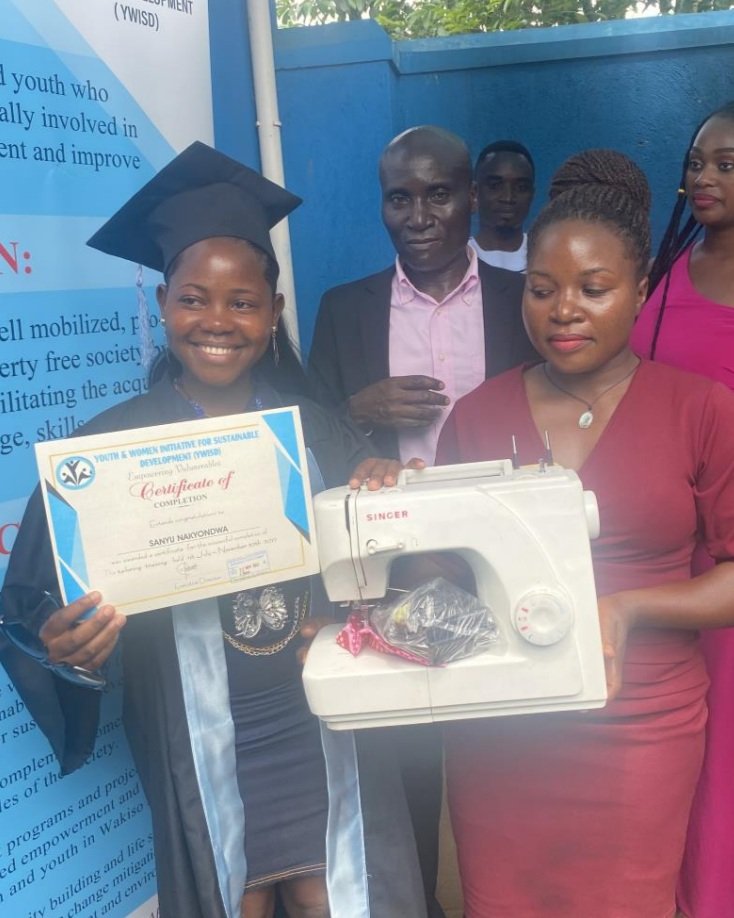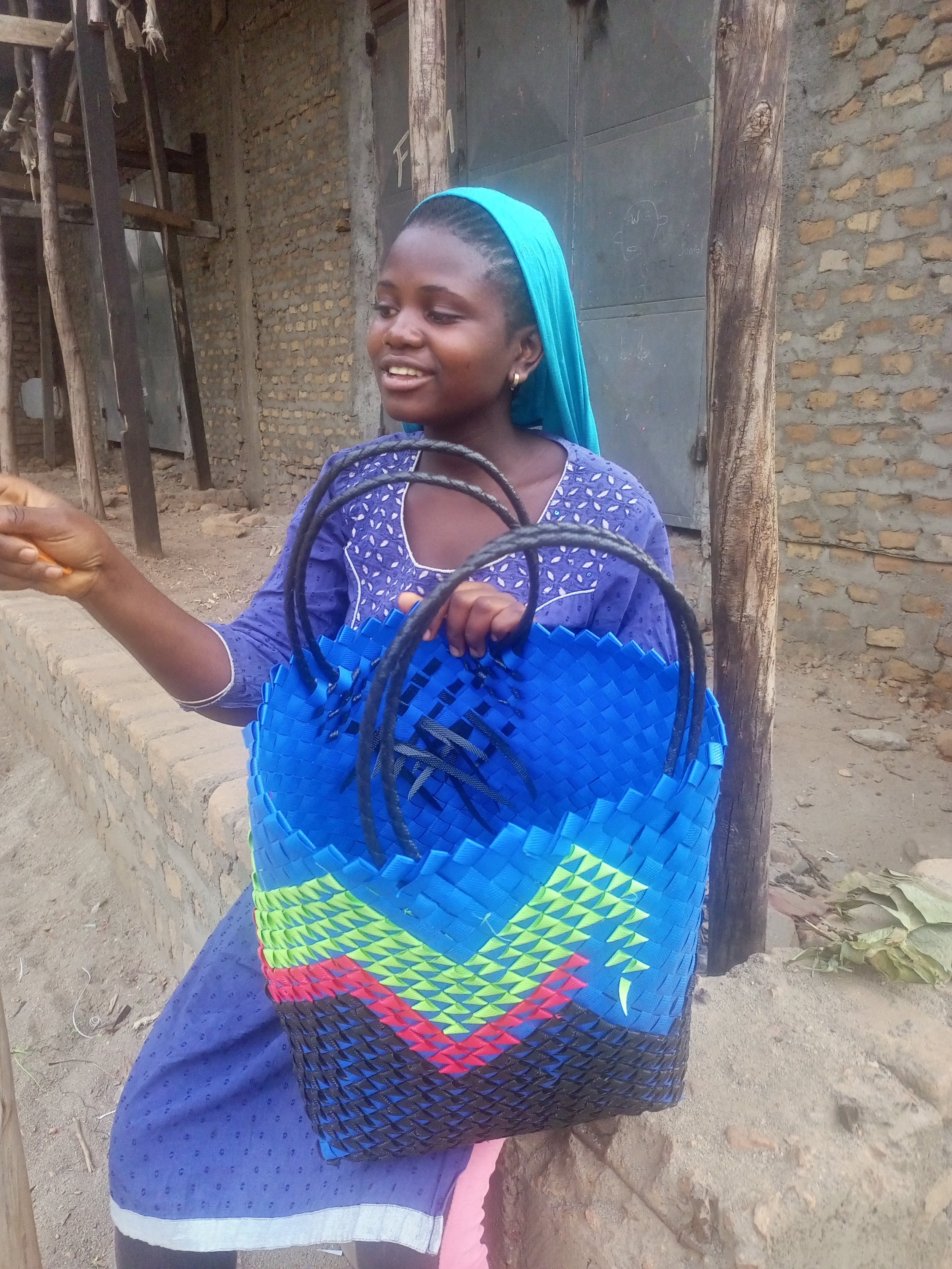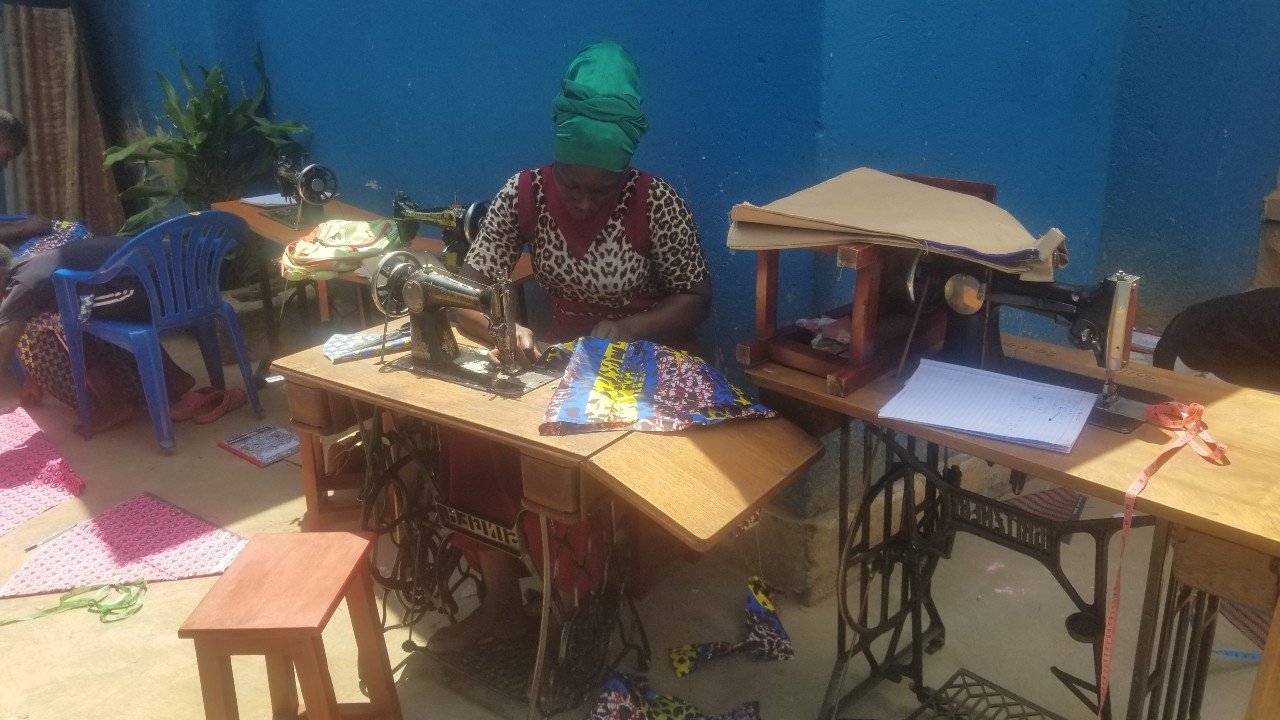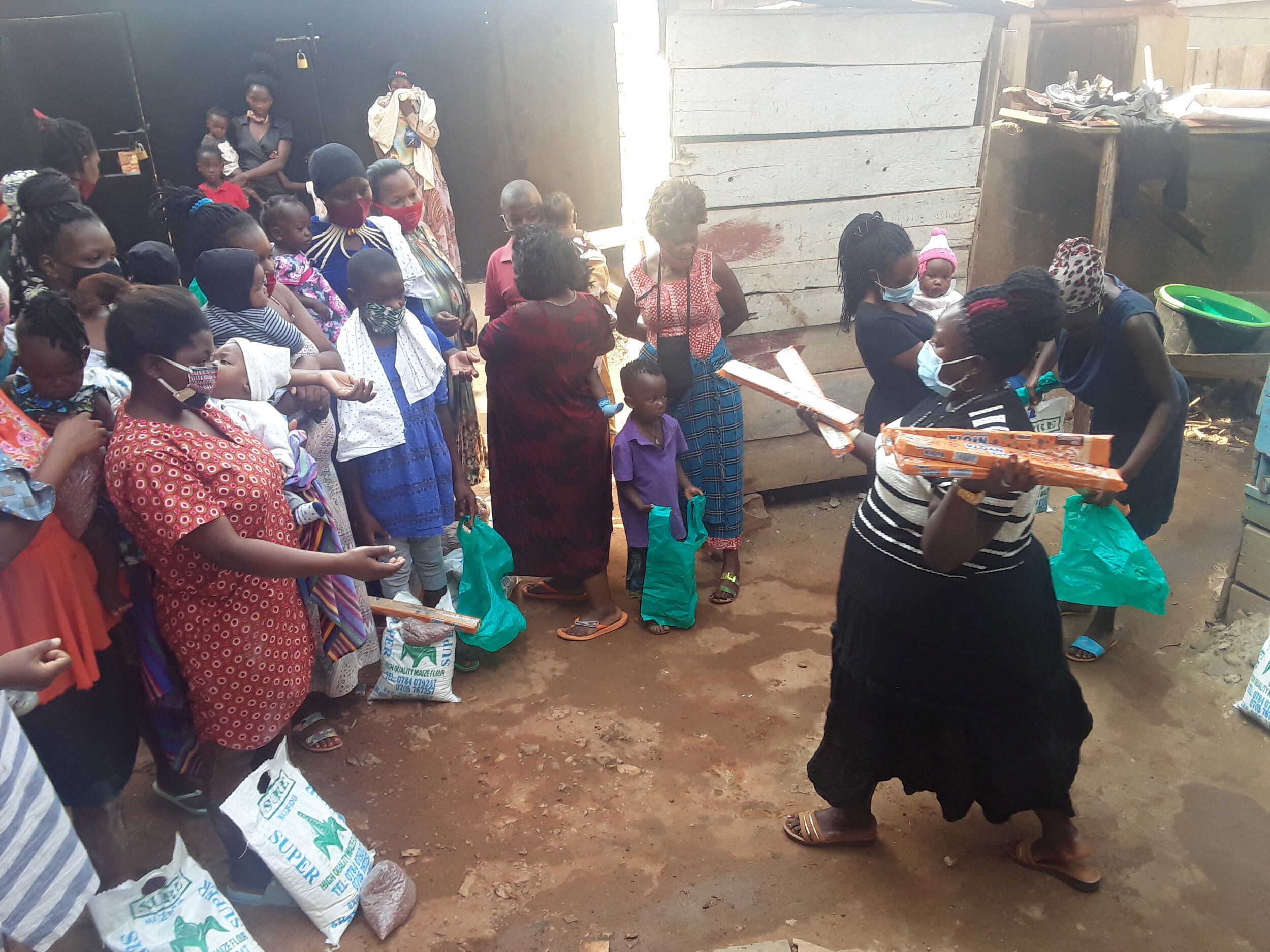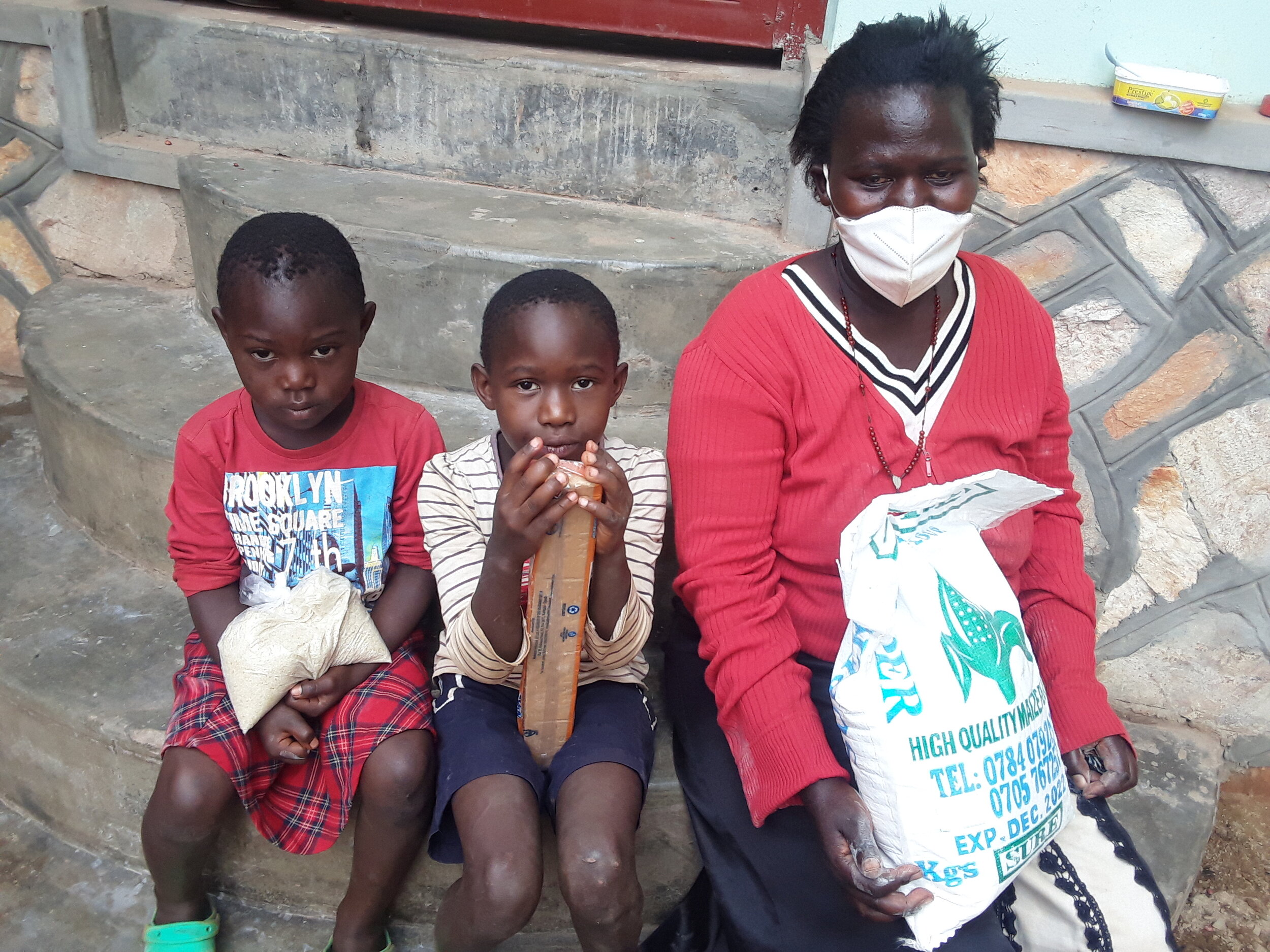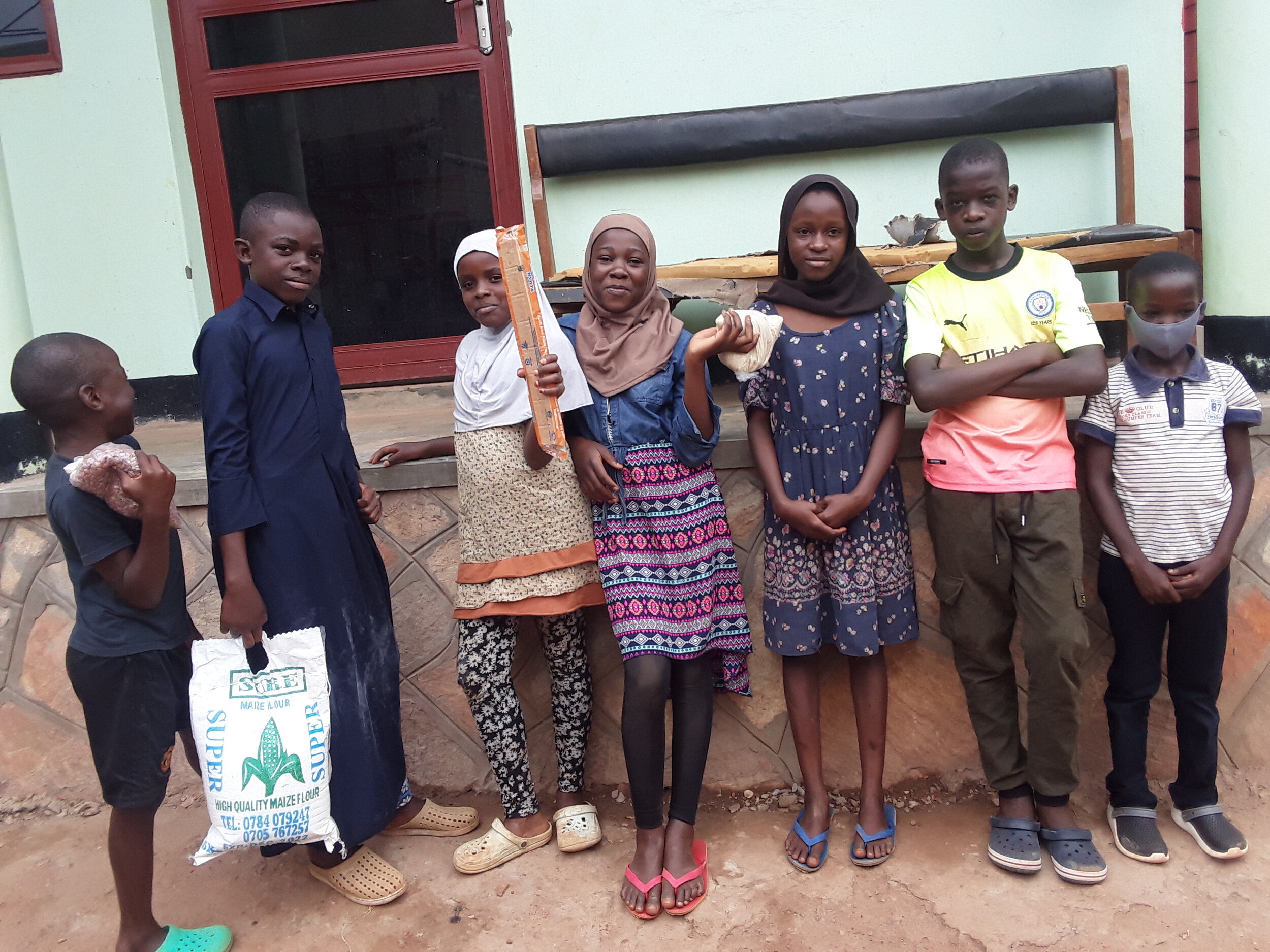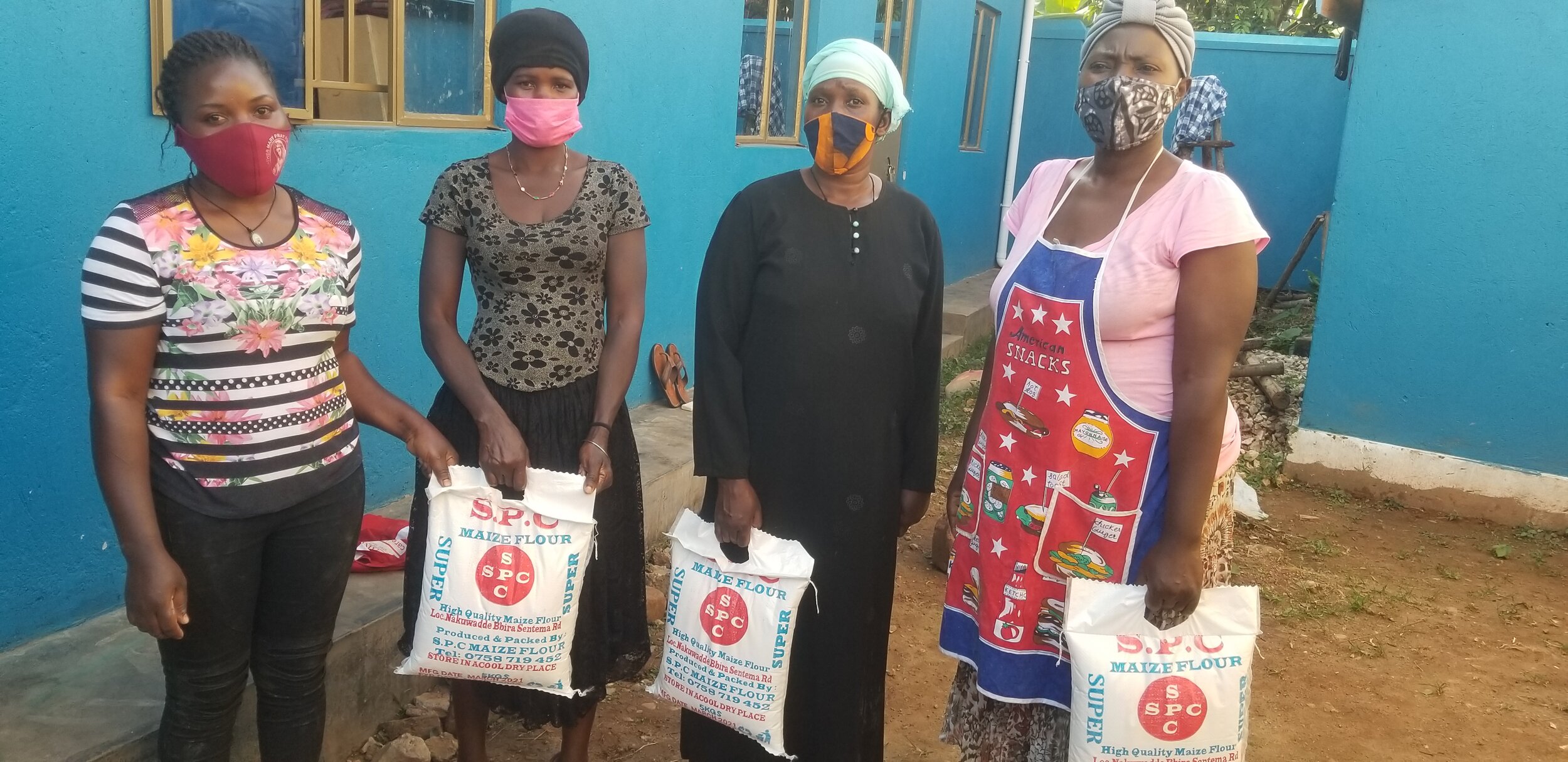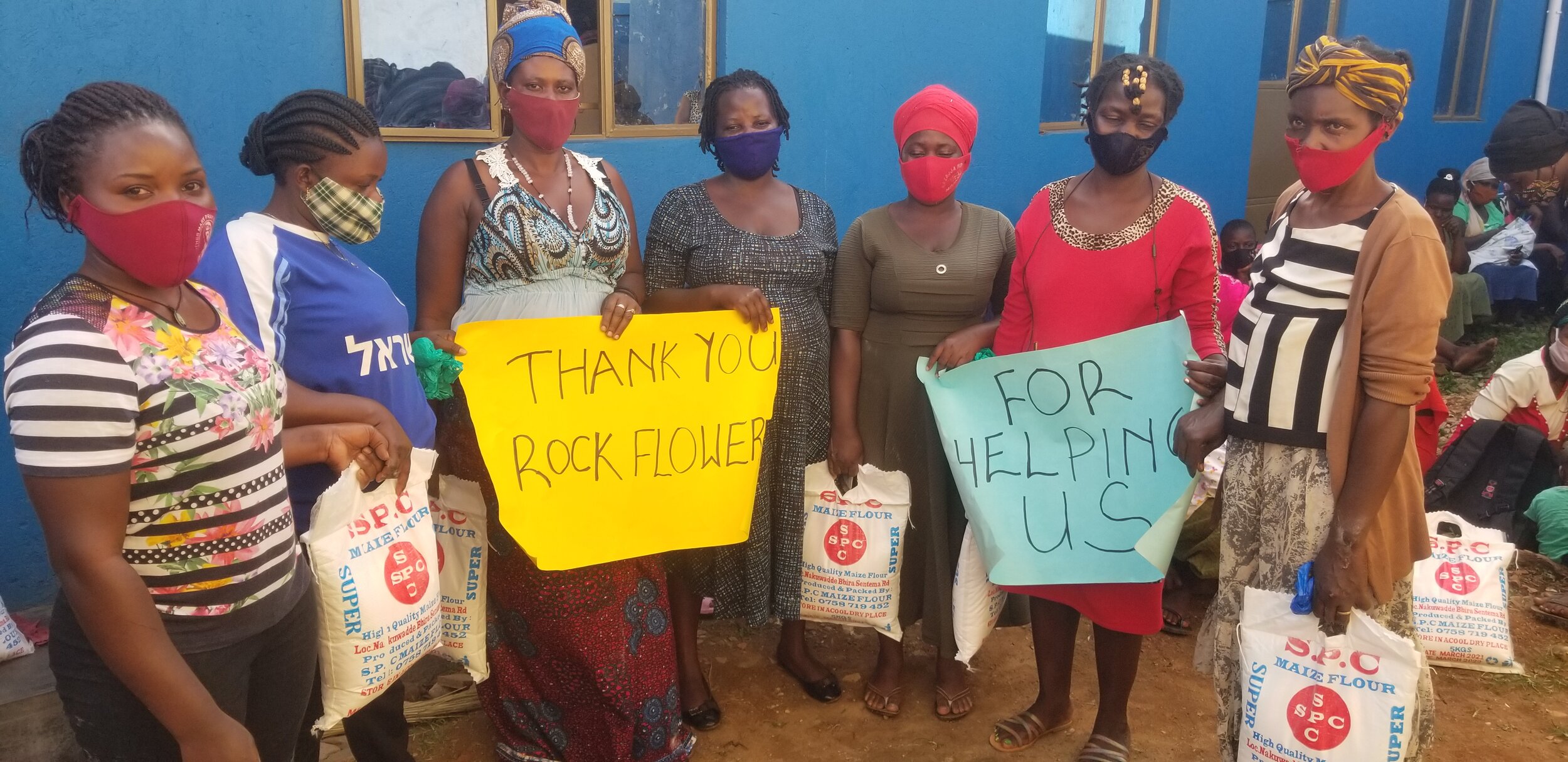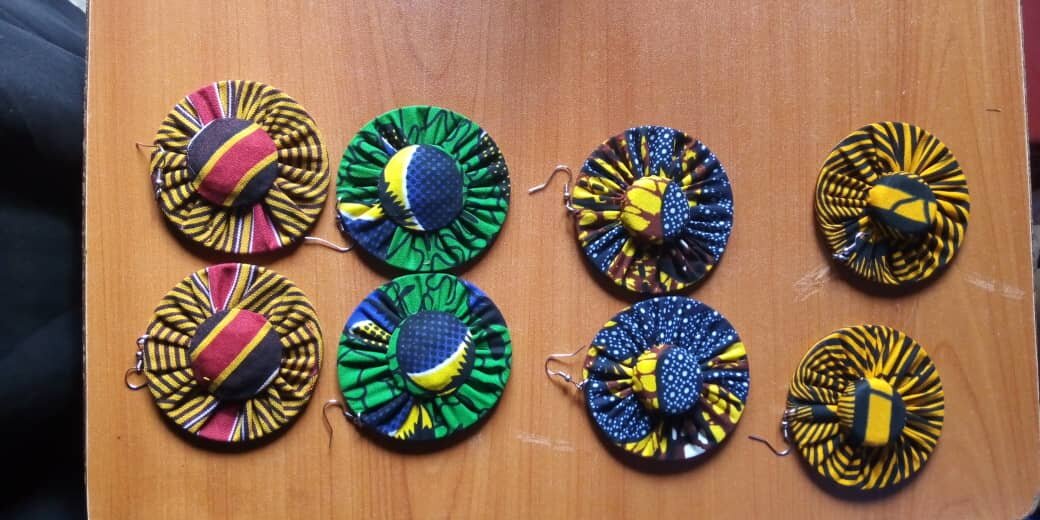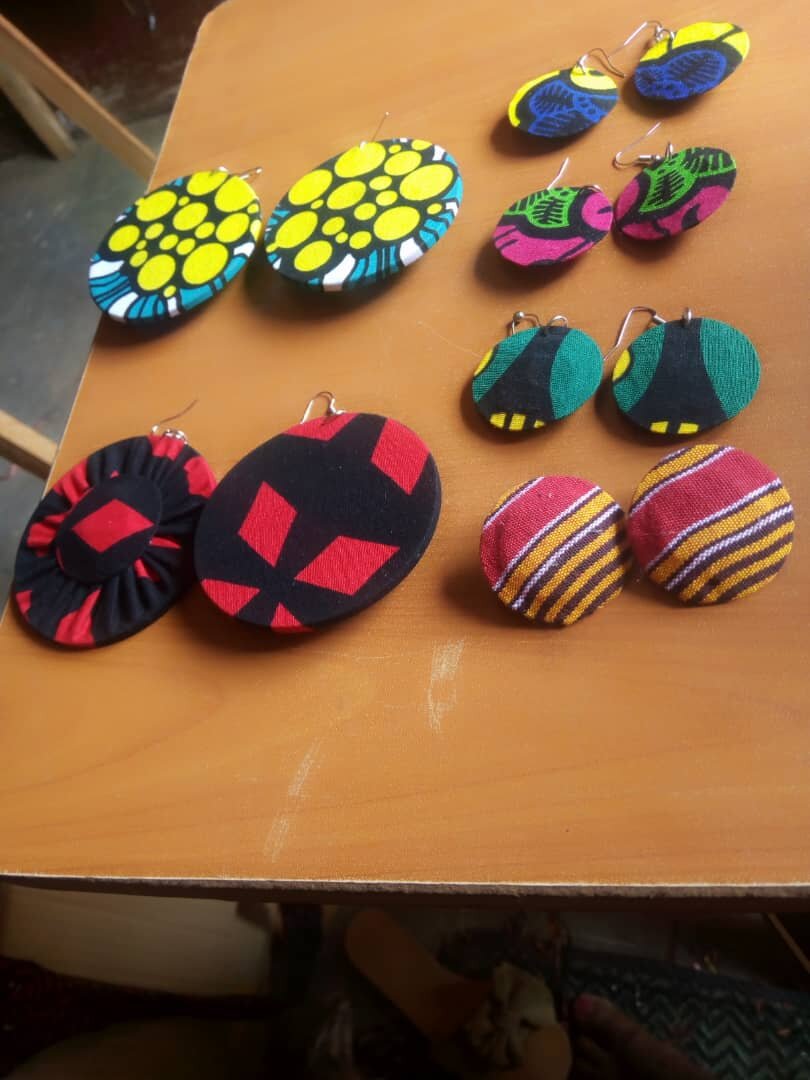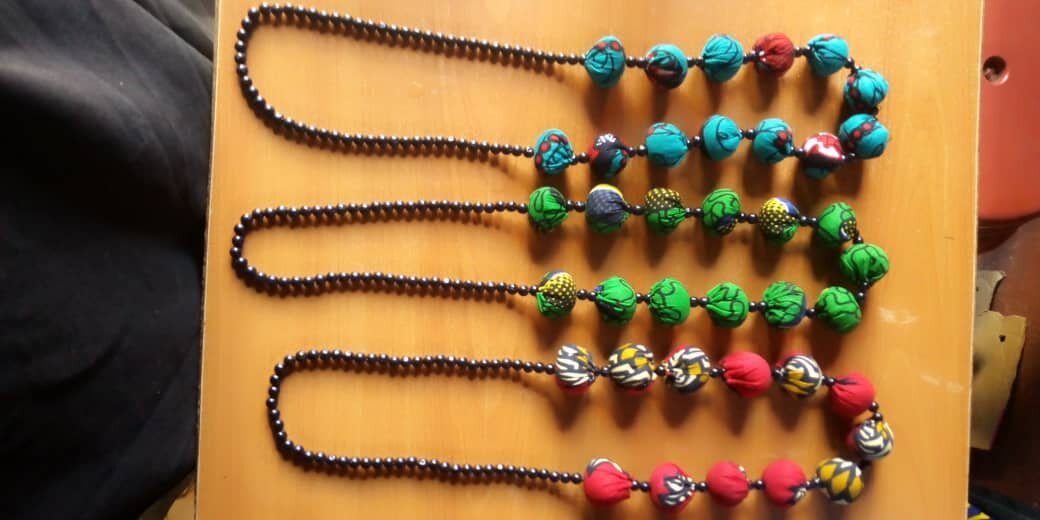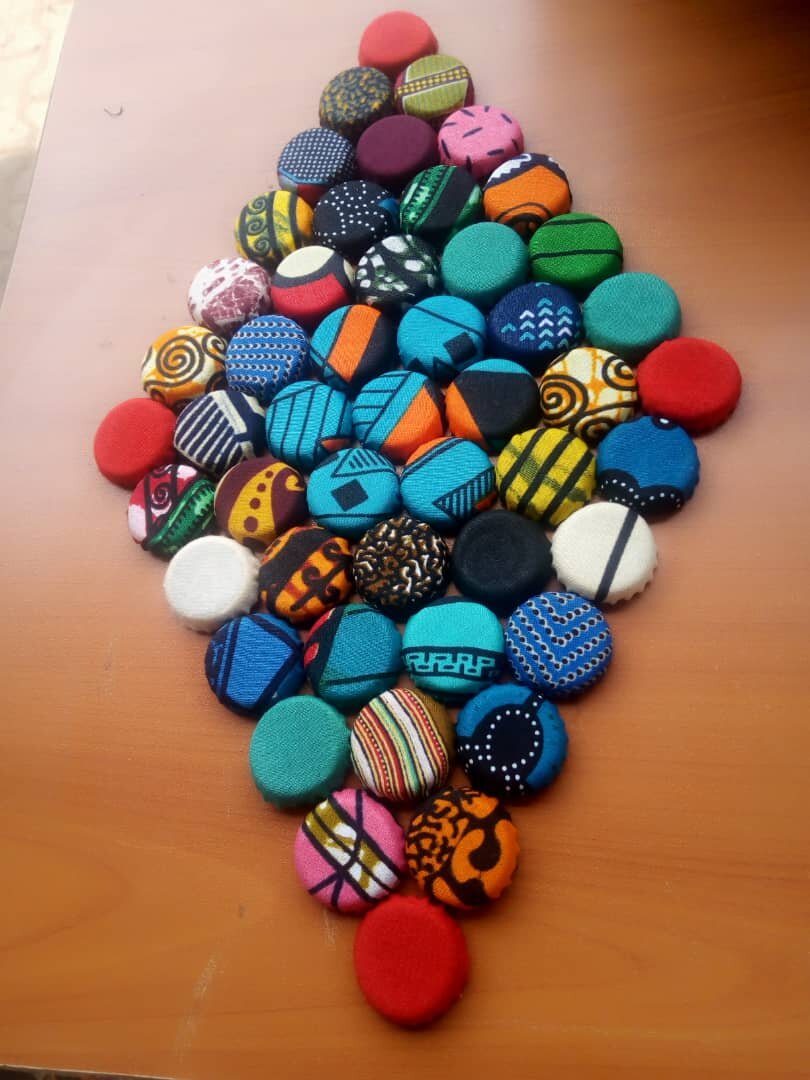In the heart of Uganda, a profound transformation is underway. Through the collective efforts of Rockflower and its partner organizations, Youth & Women Initiative for Sustainable Development (YWISD) and Rwenzori United Group for Life Improvement (RUGLI) women and girls on the global margins are breaking free from the cycle of poverty and finding independence. By providing vocational training in tailoring, baking, and weaving, these initiatives are not just teaching skills; they are rewriting destinies.
The Kisoboka Project by YWISD
Chairperson Ms. Angella Nankindu handing over certificates & sewing machine to Sanyu Nakyondwa
Kisoboka, meaning "you can do it," perfectly encapsulates the spirit of YWISD's project in the Wakiso District. By training 100 women and girls in tailoring and baking, the project has become a beacon of hope. This initiative, initially planned to last 12 months, has no plans of slowing down as they move into their second year of education and expand their reach.
One remarkable story is that of Nagadya Jacklyn, a 32-year-old single mother. Jacklyn, who never attended school due to cultural biases against educating girls, found herself struggling to support her daughters. "Bakery has changed my life," she shared, revealing how the project enabled her to envision a brighter future for her family. “I now see their future brighter as I am now able to make profits by baking and selling products as the market is so big in my community.”
Another beneficiary, a 22-year-old named Nampima Luwera, narrated her journey from feeling ashamed of the life she was forced to lead, to gaining newfound confidence in her abilities and strengths. Forced into prostitution at 19 and battling HIV/AIDS, Luwera found salvation in the baking skills she acquired. "I have started my small baking business... I will live with dignity in my community," she said, her voice resonating with gratitude and pride.
The youngest, 17-year-old Gift Kyomuhendo, impoverished and left without parents at a young age, shared how tailoring skills provided her a lifeline. "I am now able to provide food and other basic needs... I now have hope of saving and starting my own business," she expressed.
Ssentongo Charles, the Chairman Local Council One, highlighted the project's impact on the community. "It's a great opportunity and blessing... I am so grateful for YWISD and Rockflower for empowering women and girls in our community," he stated.
RUGLI's Weaving Path to Independence
Kabugho Agnes, 19, with a basket she weaved
Parallel to YWISD's efforts, RUGLI's initiative focuses on weaving shoulder bags, a skill in high demand. This project targets disabled women, young mothers, and those marginalized by societal challenges. It has already proven a huge success, and its effects continue to snowball as more women share the skill of weaving bags.
Biira Ellen's story stands out. From weaving, she progressed to buying her own sewing machine, a symbol of her growing independence. Kansimbasi Annet, a 32-year-old woman who faced rejection from her husband and parents, found solace and economic empowerment through this project.
Arinaitwe Brenda, a 21-year-old who had to drop out of college, shared her journey of resilience. "I opted to join as soon as possible but I later brought my friend Kyakusiima Fiona to learn weaving. We will combine and do business together. I’m happy to be here,” she said, expressing her dreams of supporting her sister's education.
Fiona, grappling with stigma after dropping out due to pregnancy, found a new beginning in weaving. "I'm happy to be part of the beneficiaries to this project funded by Rockflower in the USA," she stated with newfound confidence.
Shammim, a primary 7 dropout with two children, highlighted the ripple effect of her newfound skills. She has gone ahead to teach my daughter how to weave bags and she now affords to buy 3 meals a day and also pay school fees for her children.
Uniting for Change
These stories, each unique yet interconnected, prove the transformative power of vocational training and underscore the impact that can be made through small scale funding. Through Rockflower's partnerships with YWISD and RUGLI, women in Uganda are not just learning skills; they are reclaiming their dignity, reshaping their futures, and, most importantly, breaking the cycle of poverty.
In the words of these courageous women, there is a universal message of hope and empowerment. Rockflower's commitment to investing in the lives of women and girls on the global margins is not just changing individual lives; it is uplifting entire communities, one skill at a time.

